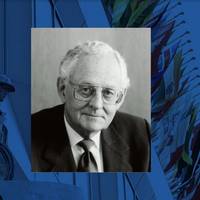IMO SG Emeritus William O’Neil Passes Away

William A. O’Neil, Secretary-General Emeritus of the International Maritime Organization (IMO), has died in the United Kingdom, aged 93.O’Neil was elected Secretary-General of the IMO for a first term of Office beginning in 1990, a second term beginning in 1994, a third term beginning in 1998 and a further two-year term from 2002 to 31 December 2003. He was the second longest serving Secretary-General of IMO.Current IMO Secretary-General Kitack Lim expressed his sincere condolences to the Canadian Government…
Fowler Assumes Command of U.S. Naval Academy
Vice Adm. Jeffrey L. Fowler relieved Vice Adm. Rodney P. Rempt as Superintendent of the United States Naval Academy during a change of command ceremony held in Alumni Hall on June 8. Chief of Naval Operations Adm. Mike Mullen praised Rempt’s accomplishments during his four years at the Naval Academy, commending his focus on developing midshipmen as combat leaders of character. “As a Naval Academy grad, I want to thank you for all that you have done for my alma mater, the naval services, and the nation,†Mullen said. Rempt, a surface warfare officer and a 1966 graduate of the U.S. Naval Academy, became the 59th superintendent of the U.S. Naval Academy in August 2003. “I am eternally indebted to the finest faculty in the country,†said Rempt.
Kissinger Addresses Brigade of Midshipmen
Former Secretary of State Dr. Henry A. Kissinger addressed the Brigade of Midshipmen on April 11 in the U.S. Naval Academy’s Alumni Hall. Kissinger served as the keynote speaker for the 47th annual Naval Academy Foreign Affairs Conference (NAFAC). In his address to the Navy and Marine Corps’ future officers, Kissinger compared his experiences as a college professor and a policy maker. He explained that professors can choose their subjects and spend as much time studying those subjects as they wish, while policy makers must deal with the subjects they are dealt, with no control over the timing. “Politicians, unlike professors, are responsible for not only the best that can happen but for the worst that can happen,” said Kissinger.





